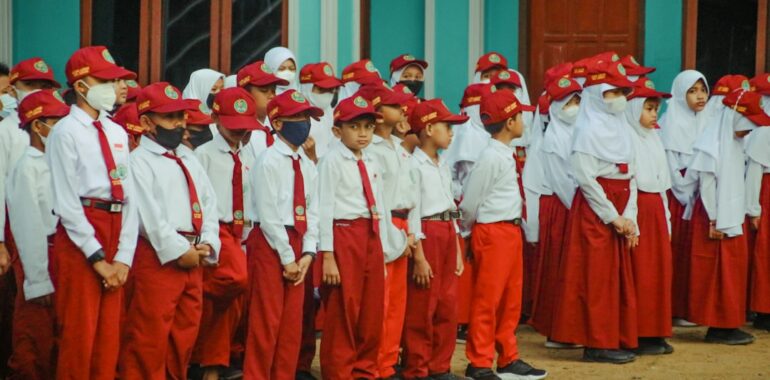How to Start and Build a Successful Science Olympiad Team

Meta Description: Learn the essential steps to form and develop a competitive Science Olympiad team, enhancing collaboration and academic success in your school.
Building a Science Olympiad team is an exciting journey that fosters teamwork, scientific inquiry, and academic excellence. Whether you’re a teacher looking to ignite passion in your students or a student eager to dive into competitive science, forming a successful team involves strategic planning and dedicated effort. Here’s a comprehensive guide to help you start and build a thriving Science Olympiad team in your school.
Step 1: Secure Support from Your School and Community
The foundation of a successful Science Olympiad team lies in garnering support from your school’s administration and the broader community.
-
Engage with School Leadership: Present your vision to the principal or relevant school authorities. Highlight the benefits of participating in Science Olympiad, such as enhancing STEM education and fostering critical thinking skills.
-
Budgeting and Resources: Science Olympiad is relatively low-cost compared to other STEM competitions, typically ranging from $125 to $300 per team depending on the state. Ensure you account for expenses like team materials, transportation, and refreshments.
-
Community Involvement: Seek support from parents, local businesses, and science educators. Donations and fundraisers can significantly offset costs. Additionally, partnerships with local science museums or community colleges can provide valuable resources and expertise.
Step 2: Recruit Enthusiastic Students
A diverse and motivated team is crucial for success in Science Olympiad.
-
Host Introductory Meetings: Organize meetings at the beginning of the school year to introduce the Science Olympiad program and its benefits. Use engaging presentations and success stories to attract interest.
-
Collaborate with STEM Teachers: Reach out to fellow educators for student recommendations. Look for students with strong academic performance, leadership qualities, and a passion for science.
-
Diverse Skill Sets: Aim to build a team with varied talents and interests, encompassing different scientific disciplines. This diversity ensures that all events have knowledgeable and capable participants.
Step 3: Understand Events and Gather Study Materials
Familiarity with the competition structure is essential for effective preparation.
-
Review Rules Manuals: Each season, free Rules Manuals are released after Labor Day. These documents outline the events and their specific requirements.
-
Utilize Available Resources: Explore the official Science Olympiad event pages for study guides, practice tests, and useful web links. The Science Olympiad Store offers Study Packs and video tutorials that can aid in preparation.
-
Implement the MYSO Curriculum: The Middle School Science Olympiad (MYSO) curriculum aligns with event topics and provides structured learning materials to help students grasp complex scientific concepts.
Step 4: Establish Regular Practice Sessions
Consistent practice is key to building a competitive team.
-
Schedule Weekly Practices: Organize after-school sessions where students can collaborate, study, and develop their skills. Regular meetings help maintain momentum and ensure continuous progress.
-
Leverage Expertise: Invite teachers, parents, or local scientists to assist with specific events. Their expertise can provide valuable insights and enhance the team’s capabilities.
-
Focus on Event-Specific Skills: Divide practice time between Knowledge Events, Lab Events, and Build Events to ensure comprehensive preparation across all competition areas.
Step 5: Assign Students to Specific Events
Strategic allocation of team members to events maximizes the team’s strengths.
-
Assess Strengths and Interests: Understand each student’s unique skills and interests to assign them to suitable events. This alignment boosts performance and keeps students engaged.
-
Limit Participation: Only 15 students per team are allowed to compete in tournaments. Select participants based on their dedication, preparation, and ability to represent the team effectively.
-
Event Types:
- Knowledge Events: Focus on research and quick information recall.
- Lab Events: Emphasize practical laboratory skills and data interpretation.
- Build Events: Involve designing and constructing devices within specified parameters.
- Hybrid Events: Combine elements from the above categories, requiring versatile skill sets.
Step 6: Prepare for Tournament Time
Competition day is a culmination of your team’s hard work and preparation.
-
Participate in Invitational Tournaments: These events provide valuable experience and feedback, helping your team refine their strategies before major competitions.
-
Stay Informed: Keep track of regional and state tournament schedules through your state’s official Science Olympiad website. Winning teams have the opportunity to compete at the national level, adding prestige to your school’s accomplishments.
-
Celebrate Achievements: Regardless of the competition outcome, recognize and celebrate your team’s dedication and progress. Emphasizing teamwork and personal growth reinforces the positive aspects of participation.
Conclusion
Forming a successful Science Olympiad team is a rewarding endeavor that cultivates a love for science, fosters teamwork, and enhances academic performance. By securing support, recruiting the right students, understanding event requirements, maintaining regular practices, strategically assigning events, and preparing thoroughly for competitions, your team can achieve remarkable success.
Embark on your journey of School Team Formation today and watch your students thrive in the exciting world of Science Olympiad!




